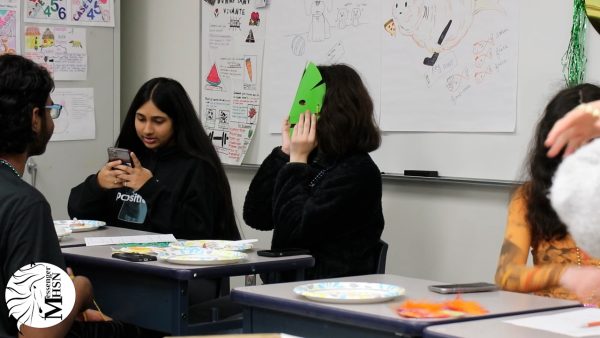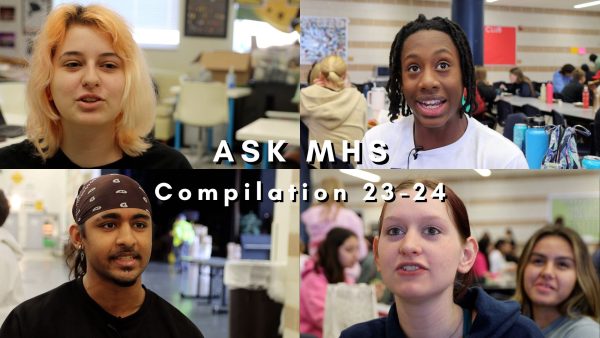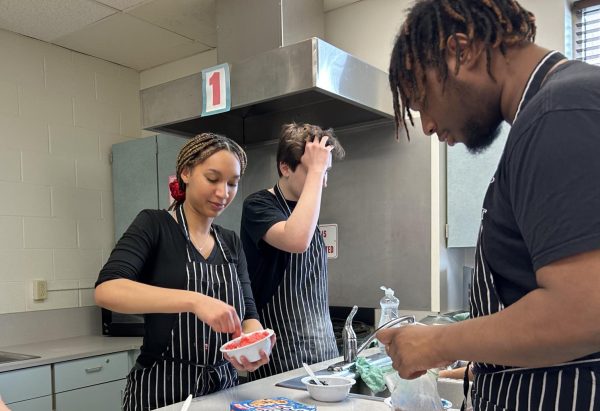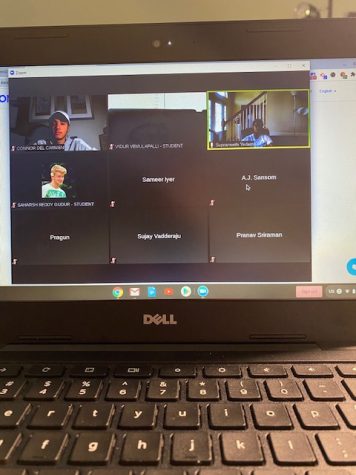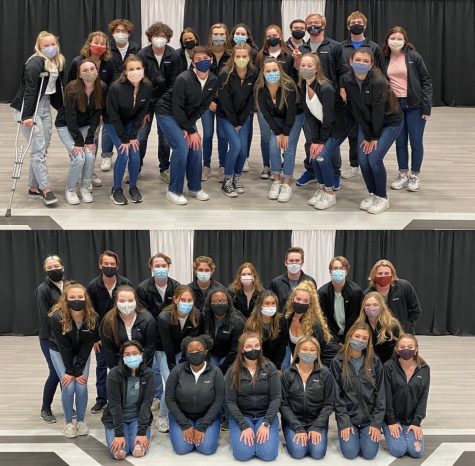Speaking Multiple Languages Helps Students in School and Business Worlds
Daniel Guardado, sophomore, has a skill that puts him at an advantage over many of his peers: he speaks both English and Spanish fluently.
Guardado learned Spanish at home by speaking to his parents, who are from Mexico. However, Guardado said he speaks far more English, which influences how he processes information. More than 22 percent of children in the U.S. who speak a language other than English at home, generally find the skill to be advantageous in school and in the business world. — Kids Count Data Center
“I think it’s because I am more exposed to English because I speak it with my brothers and at school as well,” Guardado said.
Guardado, although still in high school, has already seen the benefits of being bilingual.
“Speaking both languages makes life easier because if I’m in a place where there are Spanish and English speakers, I can communicate with both,” Guardado said.
According to the Kids Count Data Center, more than 22 percent of children in the U.S. who speak a language other than English at home, generally find the skill to be advantageous in school and in the business world.
Carol Logue, English for speakers of other languages (ESOL) teacher, said finding a job may be easier for bilinguals.
“Many companies and businesses pay extra to have a bilingual employee,” Logue said.
Logue said many corporations notice how valuable the skill of communicating directly to a foreign company can be, especially in an increasingly globalized world.
Being multilingual may be rewarding, but it is still a difficult feat to achieve. This is especially true for foreign born students.
“Often, they have to work doubly hard in their academics,” Logue said. “Not only are they learning new content, they’re doing it in a new language.”
Logue also said many bilinguals realize how important the ability to speak two languages is when they use it to get critical tasks done.
“Many of my students translate for their families with things like negotiating contracts or detailing medical procedures and doctors appointments,” Logue said. Many of my students translate for their families with things like negotiating contracts or detailing medical procedures and doctors appointments. — Carol Logue
Lea Sousani, senior, is a student in Logue’s class who has had an experience like this. Sousani is a refugee from Syria and speaks English, Arabic, Turkish, and Armenian.
“When we came to the United States, I helped my mom translate from Arabic to English, and sometimes I help my grandparents when they go to the hospital or public centers,” Sousani said.
Sousani’s work translating has proved to be very important because her mom does not live in the U.S. Her parents still live in Syria, even after sending Lea and her brother to the U.S. to live with her grandparents.
Sousani also said that since English is the only language you need to communicate with people in American life, many never learn more than one language.
“It’s good to speak many languages, but it depends what country you are in,” Sousani said. “It only takes English to speak here; I haven’t seen anyone speaking Arabic or Armenian here.”
Robin Harvey is a professor of foreign language education, bilingual education and teaching language to speakers of other languages (TESOL) at New York University. She said speaking multiple languages can affect future opportunities for students in the real world.
“I think bilingualism is valued in many areas of business because we are such an increasingly globalized world,” Harvey said. “I think that you’re seen and understood differently when you have the knowledge of a second language.”
Harvey added that bilingualism has a positive effect on the brain.
“We know that being multilingual helps the brain to develop flexibility,” Harvey said “People who speak more than one language find it easier to solve certain types of complex problems at school.” I think this is a good thing because when we have lots of different cultural backgrounds, we become a place that really understands the world. — Robin Harvey
These types of problems can include written response questions in history or language arts that force students to view a situation from a new cultural perspective. They could also be questions focusing on the roots of words that are shared throughout different languages.
Although Harvey said the benefits of speaking multiple languages are sizeable, many bilinguals who learned a language within their households feel the pressure to assimilate entirely to American culture as they age.
“As kids begin to get older and want to start fitting in more with their peers, they begin to move more into English,” Harvey said. “Then, gradually they may start only speaking English to their parents.”
Harvey said this could cause a loss of ability to speak a language.
She said society should recognize the potential in being bilingual, and ease the pressure for multilinguals to exclusively speak English.
“I think this is a good thing because when we have lots of different cultural backgrounds, we become a place that really understands the world,” Harvey said.
Your donation will support the student journalists of Marquette High School. Your contribution will allow us to purchase equipment and cover our annual website hosting costs. You may become a PATRON by making a donation at one of these levels: White/$30, Green/$50, Blue/$100. Patron names will be published in the print newsmagazine, on the website and once per quarter on our social media accounts.

Connor Del Carmen, senior, is the Associate Editor for the Marquette Messenger. This will be his second full school year on staff. Connor also runs varsity...

Shon Sayfuddinov, senior, has been the Associate Producer of the MHSNews since 2018. His leadership in activities includes being the Co-captain of the...




